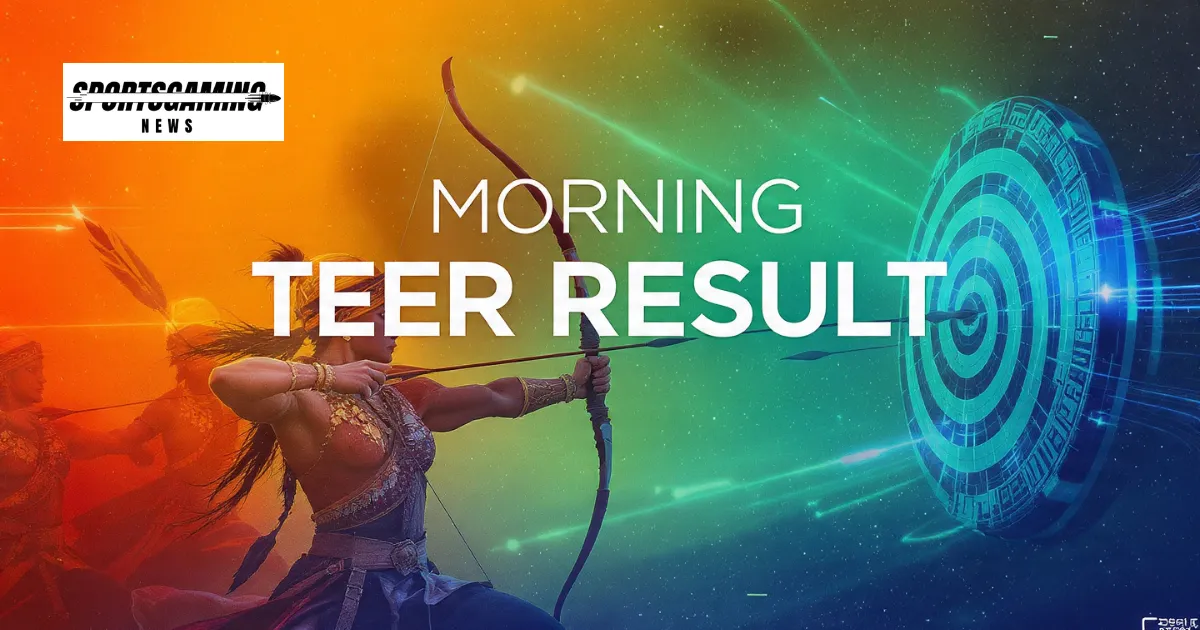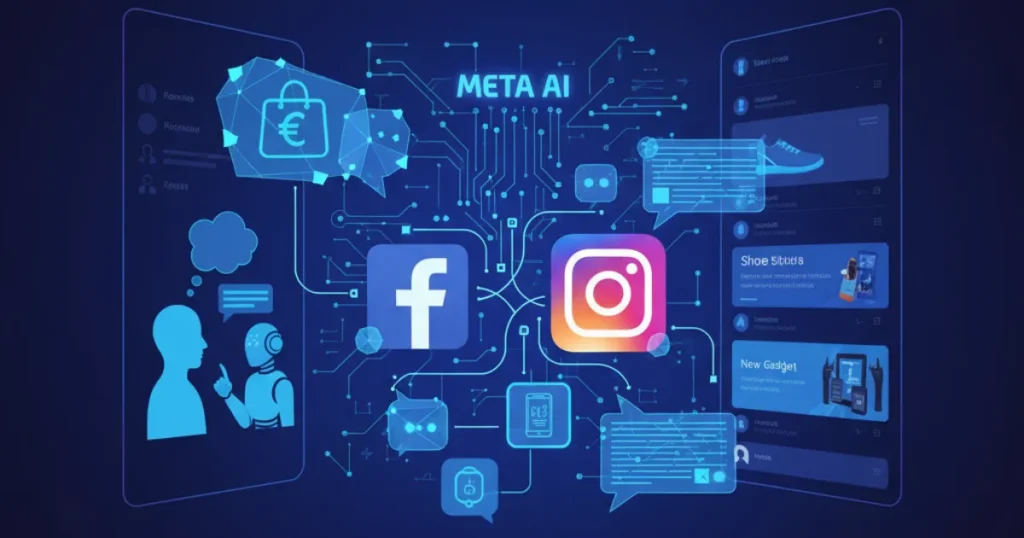In an era where data is gold, Meta AI is gearing up for a big change. Starting December 2025, Facebook and Instagram will begin to use your Meta AI chats for ad targeting. Right now services like sportsgamingdaily are already preparing coverage on how this shift may reshape digital advertising. In this post, you will learn how Meta AI ads from chats, Facebook Instagram AI chat targeting, Meta uses AI chats for ads, Meta chat-based ad personalization, Meta privacy update AI chats, Meta generative AI ad targeting, and Meta content personalization from AI chats will work — and what risks and controls lie ahead.
What Is Changing in December 2025
In mid-December 2025, Meta will roll out a new policy: your conversations with the Meta AI chatbot may be added to your profile data. Those data points will help determine which ads and content you see on Facebook and Instagram. In effect, Meta will serve Facebook and Instagram ads based on your AI chats.
For instance, if you ask Meta AI about hiking gear, you might later see ads for boots, trail maps, or outdoor brands. That is how Meta plans to use AI conversations to influence ads. This is a type of Meta roll out AI chat based personalization December 2025 that expands targeting beyond likes, follows, and browsing behavior.
Meta claims it will exclude sensitive topics (such as religion, health, politics, sexual orientation, race) from ad targeting. That means your chats about health issues or political views should not feed into personalized ads.
This announcement affects users who engage with Meta AI. If you never use the AI chatbot, your ad experience stays mostly the same. Thus Facebook Instagram AI chat targeting only applies when you interact with the AI.
How It Works: Data Flow, Attribution, and Integration
Meta already tracks many signals—pages you follow, posts you like, your location, demographics. Adding AI chat data is another signal layer. This is Meta AI ad targeting and privacy implications in action.
When you use Meta AI on Instagram, Facebook, or Messenger, your text or voice chat inputs are analyzed. Meta then integrates them into its targeting models. Next, Meta determines which ads or posts to show you based on those results. This is Meta chat-based ad personalization at its core.
Because accounts are linked via Meta’s Accounts Center, a chat you have in one app might influence ads in others. For example, asking about cooking gadgets via Meta AI on Facebook could affect Instagram product ads. This is part of Meta uses AI chats for ads across its ecosystem.
Meta also stresses that only non-sensitive topics will be used. They call out that Meta excludes sensitive topics from AI chat ad targeting — meaning religion, race, health, politics, etc., are off limits.
Benefits and Motivations Behind This Shift
Why is Meta doing this? First, it deepens the understanding of user intent. A chat expresses desire and context. For marketers, that is richer data than just page likes. This is the promise of Meta generative AI ad targeting and Meta content personalization from AI chats.
Second, it makes ads more relevant. Users may find what they see less intrusive and more helpful. Ad performance (clicks, conversions) could improve. That helps Meta monetarily.
Third, the timing is strategic. As regulation tightens globally, Meta is pushing this in markets without prohibitive rules first. Regions like the UK, EU, and South Korea are excluded initially.
But there is tension with privacy. Turning private conversations into ad signals raises important questions. This is where Meta privacy update AI chats becomes a flashpoint.
Privacy, Control, and Public Concerns
When the announcement came out, many users and privacy experts expressed alarm. How private are AI conversations if they feed into ad systems? Critics ask whether Meta is turning chatbot dialogue into a surveillance tool.
Meta responds by saying the raw chats are processed algorithmically. Sensitive topics are excluded. And users will get notifications and some ad control settings. But crucially, Meta will not allow an opt-out of AI chat ad targeting if you use it.
Some reports say users cannot refuse this unless they stop using Meta AI entirely. That draws criticism.
Another concern is algorithmic bias or inference. Conversations might inadvertently reveal traits or leanings, enabling the system to guess sensitive attributes. A recent audit paper found that ad streams can leak demographic inferences. This points to risks of Meta AI ad targeting and privacy implications.
Also, transparency is limited. Users often do not see how and why a given ad was shown. Evidence suggests control tools (like “See Less”) are less effective under AI-mediated targeting.
Therefore users must be aware and cautious. Avoid discussing delicate matters in AI chats. Use privacy settings where available.
What Users and Advertisers Should Do
If you use Meta AI, it’s wise to assume your non-sensitive conversations may influence ads soon. Adjust your expectations accordingly.
For users:
- Review your ad settings periodically.
- Be cautious about sharing new interests or plans in AI chats, especially if you don’t want those to become ad signals.
- Avoid discussing sensitive topics with Meta AI to ensure they are not misprocessed.
- Monitor Meta’s communications: you’ll likely see prompts beginning October 7, 2025.
For marketers and advertisers:
- Prepare to tap into new signals. Chat inputs may improve targeting precision.
- Test campaigns with user segments influenced by AI-chat signals.
- Watch out for ad policy updates from Meta in 2025. The rules around what chat content can be used will matter.
- Use transparency and respect: over-targeting can feel invasive to audiences.
Platforms like sportsgamingdaily will likely cover case studies once the feature is live. Now is the time for brands to plan.
Potential Risks and Ethical Questions
This plan is bold but risky. Here are some of the major issues:
- Privacy Erosion. The boundary between what is private conversation and what is digital signal is shifting. People might feel surveilled.
- Unintended Inferences. Even non-sensitive topics may correlate with sensitive traits. AI could infer more than Meta intends.
- Transparency Deficit. If users can’t see how chat signals affect their ads, trust erodes.
- Regulatory Challenges. In Europe, the UK, and parts of Asia, data protection law may block or force modifications. Meta is skipping some markets at first.
- Public Backlash. Some will find the idea invasive. Meta’s reputation already carries skepticism. The company also faces criticism about prior AI bot behavior involving content moderation and misuse.
- Vendor Dependence. Advertisers become more dependent on Meta’s internal AI models and data pipelines. That may reduce their control or oversight.
Final Thoughts
By December 2025, Meta AI will shift from a conversational tool into a data engine for ad targeting. The move to Meta AI ads from chats, Facebook Instagram AI chat targeting, Meta uses AI chats for ads, and Meta chat-based ad personalization will change how users see their feeds. At the same time, the Meta privacy update AI chats raises serious ethical and legal questions. As Meta generative AI ad targeting and Meta content personalization from AI chats roll out, they’ll be watched closely.
For now, users should stay alert. Brands should prepare. Observers like sportsgamingdaily will keep the public informed. This new model will likely reshape the ad world but walking the line between relevance and reputation will be Meta’s biggest challenge.







